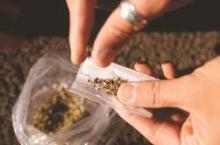The National Institutes of Health awarded 13 grants to research institutions in the United States to study the effects of adolescent substance use on the developing brain, according to a statement from the NIH issued Sept. 25.
The research project, known as the Adolescent Brain Cognitive Development (ABCD) Study, will follow approximately 10,000 children beginning at ages 9-10 years, prior to their initiating drug use, through the period of highest risk for substance use and other mental health disorders. Scientists will track the research subjects’ exposure to substances (including nicotine, alcohol, and marijuana), academic achievement, cognitive skills, mental health, and brain structure and function.
One of the grants will fund a coordinating center, another will fund a data analysis and informatics center, and the other 11 grants will fund research project sites.
Among the questions the study’s researchers will seek to answer are:
• What is the impact of occasional versus regular use of marijuana, alcohol, and tobacco, and other substances – alone or in combination – on the structure and function of the developing brain?
• How does the use of specific substances affect the risk of using other substances?
• Which brain pathways link adolescent substance use and the risk for mental illnesses?
• What impact does substance use have on physical health, psychological development, information processing, learning and memory, academic achievement, social development, and other behaviors?
• What factors (such as prenatal exposure, genetics, head trauma, and demographics) influence the development of substance use and its consequences?
The requests for applications and other information about the study are available here.


